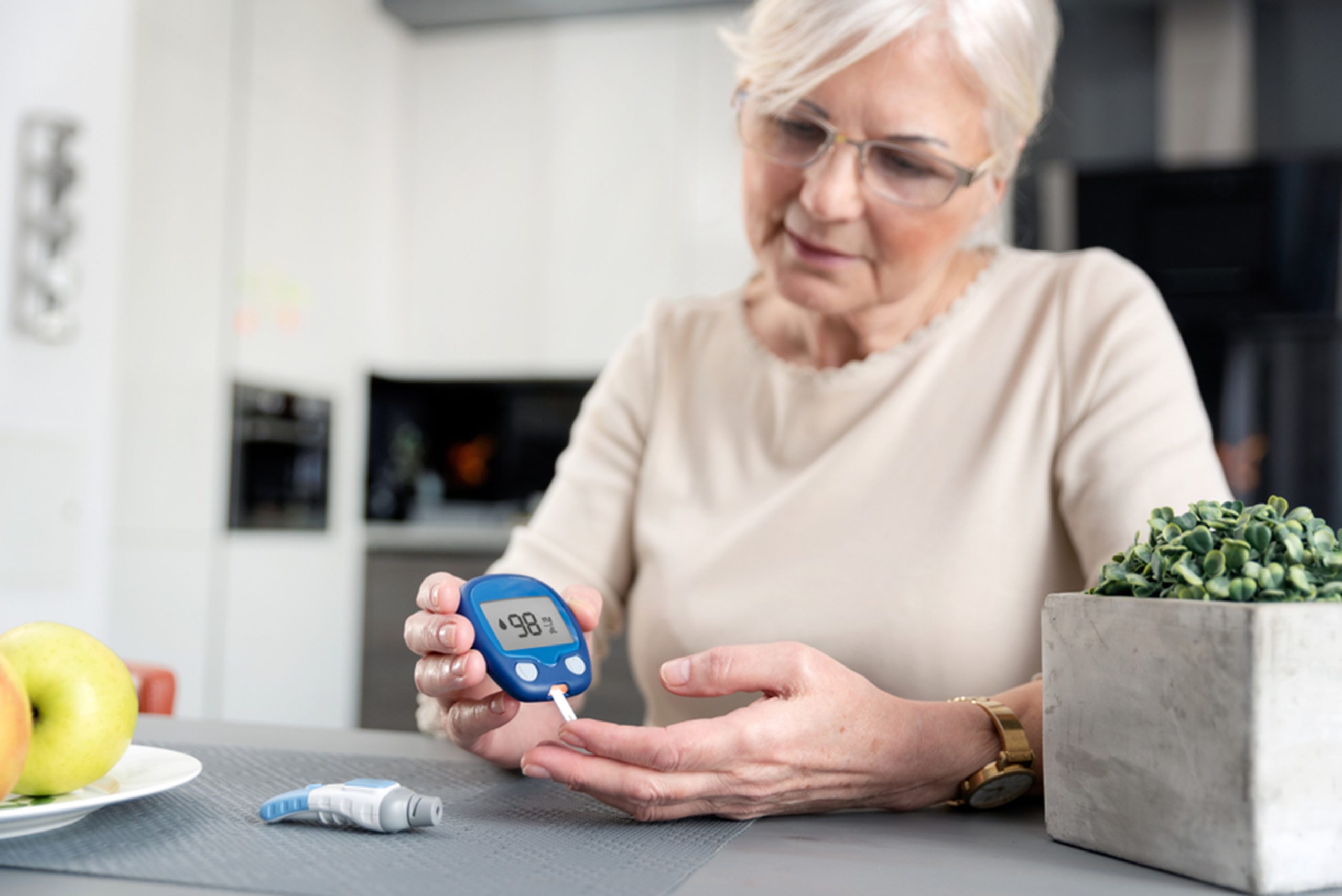About 1 in 10 Americans have diabetes. Nearly 95% of them have type 2 diabetes, a common health condition that develops in mid-life for most people.
Anyone at any age can develop type 2 diabetes.
According to the CDC, it is becoming a more common diagnosis in teens and young adults.
Those classified as obese, no matter their age, are three to seven times more likely to develop type 2 diabetes than those who maintain a healthy weight.
Although the warning signs of diabetes typically appear gradually, it is essential to know what they are, especially if you are at an increased risk of developing the disease.
Let’s explore type 2 diabetes in further detail, including exactly what it is, what causes it, risk factors, and five early warning signs.
What Is Type 2 Diabetes?
Type 2 diabetes is a common disease in which your blood sugar levels, or glucose, are elevated beyond the normal limits.
Glucose naturally occurs in your body and is mainly derived from the food you consume. It is the primary source of energy for your entire body.
Insulin is a natural hormone produced by the pancreas that works to help glucose get into your cells to give them the energy they need to work effectively.
If you have type 2 diabetes, your body doesn’t make enough insulin or becomes completely resistant to it.
This glucose and insulin imbalance causes glucose to stay in your blood instead of transferring to your cells, turning your blood into a thicker, syrup-like consistency and causing it to move less efficiently throughout the body.
Five Early Signs of Diabetes
Symptoms of type 2 diabetes are often gradual, taking years to appear fully. For some, symptoms may not be present at all, and an unexpected diabetes diagnosis may be provided after a routine or ordered blood draw.
The five most common early signs of type 2 diabetes include
1. Frequent Urination
Frequent bathroom trips, especially ones that wake you in the middle of the night, are signs of elevated blood sugar.
Diabetes pushes the kidneys to work harder than normal. When they cannot keep up with the increased demand, they push excess sugar into your urine, causing you to go to the bathroom more often.
2. Excessive Thirst
Because of the frequent urination you’ve experienced, your body becomes dehydrated more quickly, which leads to excessive thirst. Even with increased hydration, you may still feel thirsty, as your body cannot keep up with the demand.
3. Blurry Vision
Increased blood sugar can damage the blood vessels in your eyes, leading to blurry vision. It can affect one or both eyes and, when left untreated, can lead to irreversible damage and even permanent blindness.
4. Tingling and Numbness in the Hands and Feet
Because your blood sugar has thickened your blood, your limbs may experience tingling or numbness due to decreased circulation, which is most often felt in the hands and feet.
5. Unexplained Weight Loss
When your body can’t get enough energy from the food you consume, it will start burning muscle and fat instead, often leading to rapid weight loss with no diet or activity level changes.
Other common type 2 diabetes symptoms include
- fatigue
- dry skin or darkened patches of skin
- an increase in the number of infections
- increased hunger
- sores that don’t heal properly
Causes and Risk Factors
Type 2 diabetes is directly caused by an insulin issue due to elevated blood glucose (hyperglycemia).
You are at an elevated risk of developing type 2 diabetes if you
- have a family history of type 2 diabetes
- have a history of gestational diabetes
- are overweight or obese by BMI standards
- are 45 years of age or older
- have been diagnosed with high blood pressure
- are African American, Alaska Native, American Indian, Asian American, Hispanic, Native Hawaiian, or Pacific Islander
- are not physically active
- have PCOS
Diabetes Testing You Can Trust
If you are experiencing early warning signs of type 2 diabetes, we can help. We encourage you to seek further evaluation, diagnosis, and treatment at Thibodaux Regional Urgent Care in Houma today.
Our experienced team is available daily to draw your blood and get it tested in our onsite lab for the fast and efficient results you need now.
Don’t delay; get seen today. No appointment is necessary, and walk-ins are welcome seven days a week.

